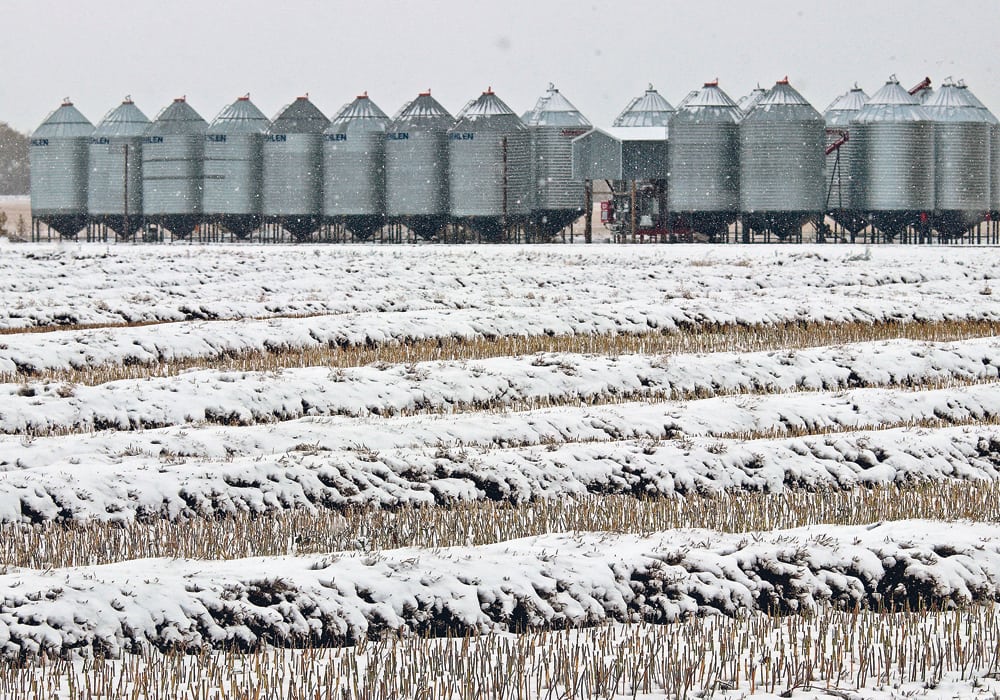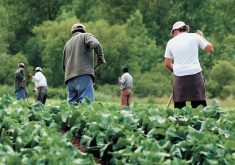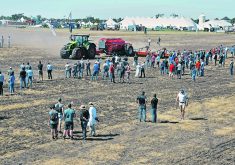CORRECTION – April 15, 2020 – 1445 CST – The original version of this story stated this program had been cancelled, however it has just been temporarily suspended.
Concerns over employee safety during the COVID-19 pandemic have prompted the Canadian Grain Commission to temporarily suspend a research project examining the quality of spring-harvested canola.
The CGC’s spring-harvested oilseed program has been “suspended because of our decision to only have critical services provided during the pandemic,” CGC spokesperson Remi Gosselin confirmed last week.
“It’s a measure that’s been taken to protect the health and safety of employees.”
Read Also

Phosphate prices to remain high
Phosphate prices are expected to remain elevated, according to Mosaic’s president.
Across Western Canada, an estimated two million acres of canola were left in the field last fall when cold wet conditions forced growers to suspend harvest operations.
Spring salvage operations are already underway in some parts of Western Canada, but in other areas, spring harvest efforts are still weeks away.
Last year, the CGC announced it would conduct research on spring-harvested oilseeds to analyze quality losses caused by overwintering.
The CGC had asked growers to submit samples of spring-harvested canola and flax for quality analysis.
Submitted samples were to be assigned an unofficial grade and examined for oil and protein content, chlorophyll content in canola, iodine values in flax and free fatty acid content.
Sample results were to be returned to producers to assist with management and marketing decisions, said Veronique Barthet, program manager for oilseeds at the commission’s grain research lab in Winnipeg.
However, the program has now been temporarily suspended due to COVID-19 pandemic concerns.
The commission will not collect samples because CGC personnel are no longer available to process the samples, Gosselin said.
“We’re disappointed about (the suspension)… but what can you do?” he said.
“We’re living in really strange and uncertain times.”
The grain commission conducted a similar research project in the spring of 2017, after prairie farmers faced harvest challenges in the fall of 2016.
In a recent interview, Barthet said research conducted in the spring of 2017 suggested that the quality of spring-harvested canola may be prone to further deterioration after it has been combined and placed in storage.
“We saw (in the spring of 2017) that there was a lot of degradation when we were storing the samples, even in good storage conditions like low moisture and not-too-high temperatures,” she said.
“I think it’s important for people to know that if they have seed like this, they may have to process it right away because the good quality (may not) last.”
In 2017, the grain commission received 173 samples of spring-harvested canola, 12 of which could not be analyzed because of excessive mould.
Of the 161 samples that were analyzed, 55 (34.2 percent) were graded No. 1, 41 (25.5 percent) were graded No. 2, and 33 (20.5 percent) were graded No. 3.
The remaining 32 submissions were graded Sample.
Contact brian.cross@producer.com
















